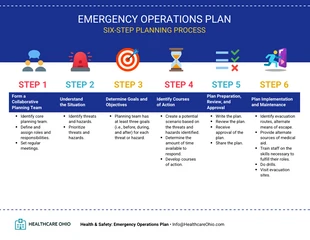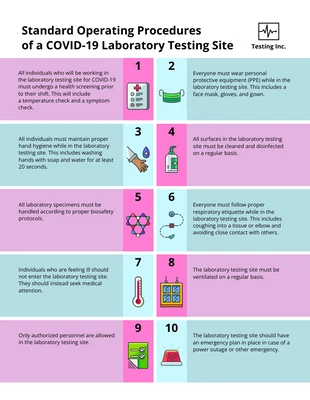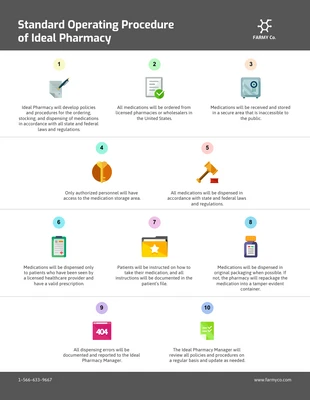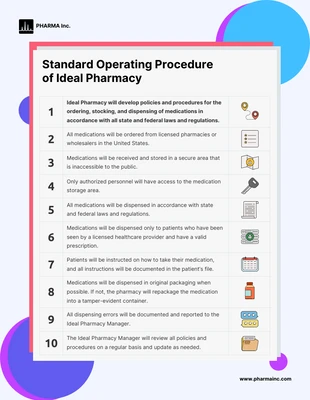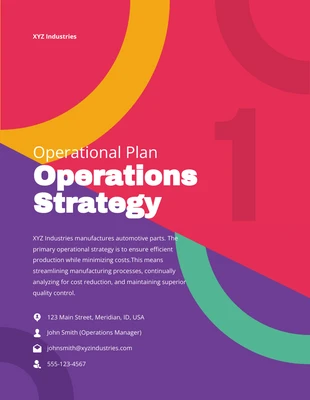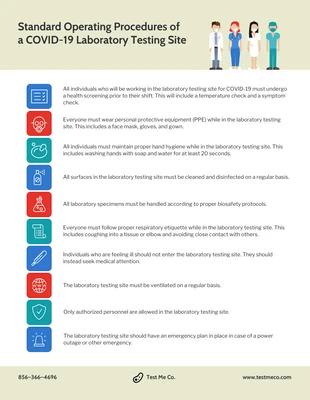
Standard Operating Procedure Laboratory Template
Maintain a safe and productive work environment where everyone knows exactly what to do by using a standard operating procedure laboratory template.
100% customizable templates
Millions of photos, icons, charts and graphics
AI-powered editing features
Effortlessly share, download, embed and publish
Easily generate QR codes for your designs
- Design stylemodern
- Colorslight
- SizeLetter (8.5 x 11 in)
- File typePNG, PDF, PowerPoint
- Planfree
Laboratories play a vital role in the medical world. They help doctors diagnose and treat patients by providing critical information about diseases and conditions. While very important to scientific research, laboratories can also be dangerous places. They often contain samples and reagents that can be harmful if they are not handled properly. To minimize the risks of accidents or exposure to hazardous materials, laboratories must be designed and operated carefully. All laboratory workers must be trained in how to safely work with risky materials. Standard operating procedures (SOPs) are necessary for any laboratory if it is to function safely and efficiently. With numerous potential accidents in laboratories, it is important to have an SOP in place. It should detail how to carry out all aspects of laboratory work safely, such as wearing appropriate personal protective equipment (PPE), using lab equipment with care, working with dangerous chemicals, and disposing of hazardous waste properly. How do you even make an SOP? While you can draw one up from scratch, it’s easier to begin with a standard operating procedure laboratory template, which can help guide your
Explore more
- Business




